The Five Areas of the Montessori Curriculum:
Practical life
Practical Life activities are purposeful tasks that simulate the activities involved in everyday life. Practical life encompasses four main areas: Control of Movement, Care of Person, Care of Environment, and Grace and Courtesy. The child observes these activities within their world and gains knowledge of them through experience using Practical Life materials in the prepared environment of the Montessori classroom. Practical Life activities are culture specific and provide children with the opportunity to develop a sense of being and belonging by participating in the activities of daily life. These activities encourage good work habits, increase concentration, independence, and develop coordination. The Practical life activities prepare the child for all other subject areas of the classroom.
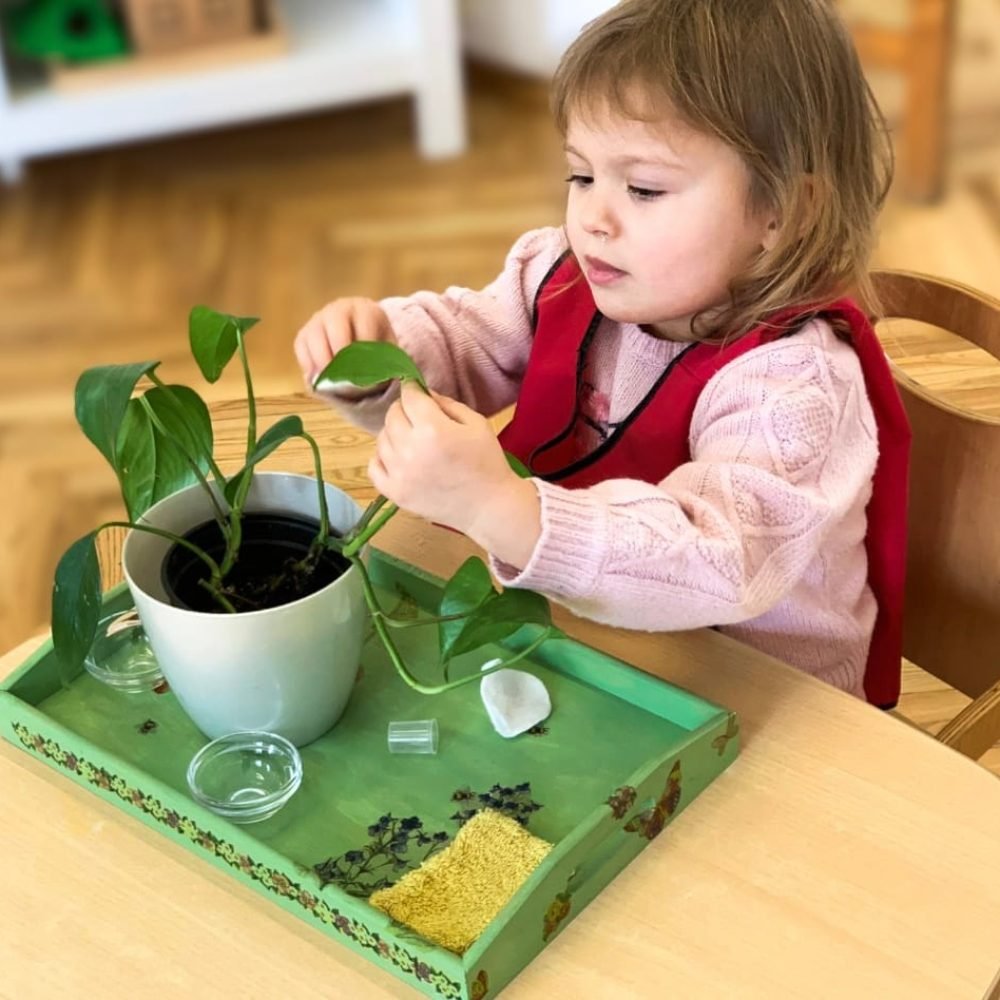
Sensorial
Sensorial activities help children enhance their senses of sight, touch, sound, smell, and taste, enabling them to organize sensory experiences and their perceptions of the world. Using sensorial materials, children explore concepts of similarity and difference, dimensions, colors, and shapes, as well as distinguishing between various smells, tastes, and sounds. Additionally, sensorial work lays the groundwork for mathematics, language, and geometry by teaching children how to classify and sort
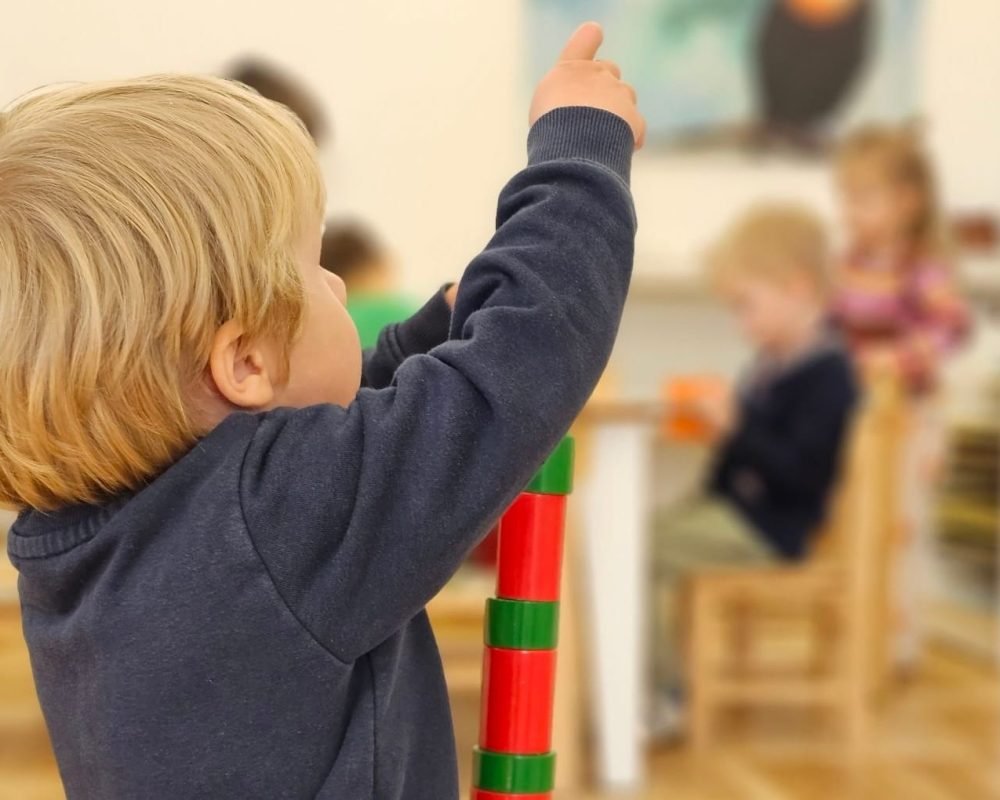
Mathematics
The Mathematics Curriculum teaches children to understand abstract mathematical concepts and relationships through hands-on learning experiences. Children learn to count, identify and match numerals to their quantity, relate decimal quantities and symbols, and become aware of the functions of addition, subtraction, multiplication and division by using the Montessori materials.
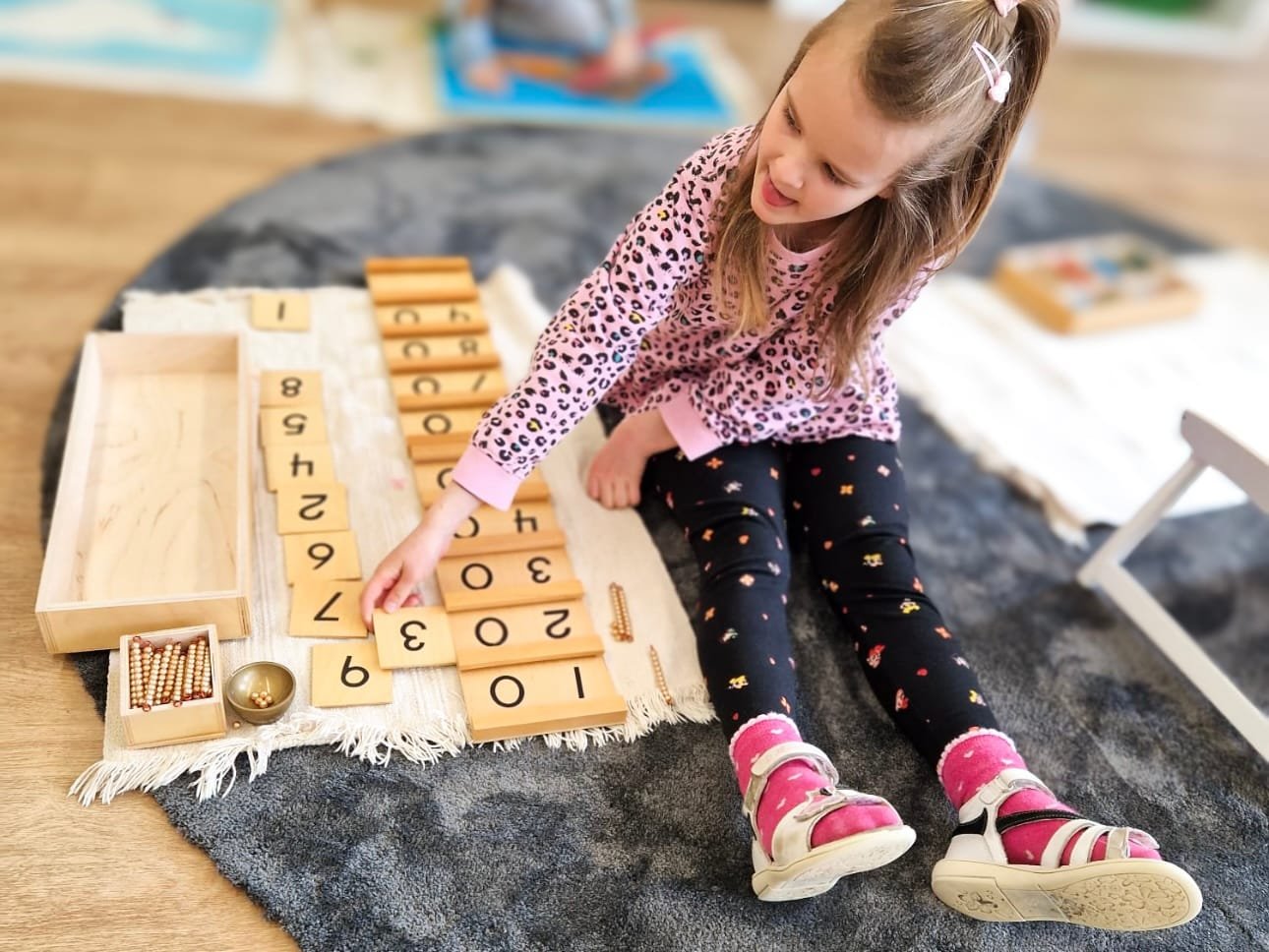
Language
The Montessori Language Curriculum provides children with the knowledge and skills to build their vocabulary and understanding of language. The skills required for reading, writing and oral language are developed through hands-on experience using the Montessori language materials. Children learn letter sounds (phonics), letter identification and formation, how to combine sounds to make words, how to build simple sentences, and how to properly hold a pencil. Oral language skills are developed through daily social interactions, group time experiences, and lessons in grace and courtesy.
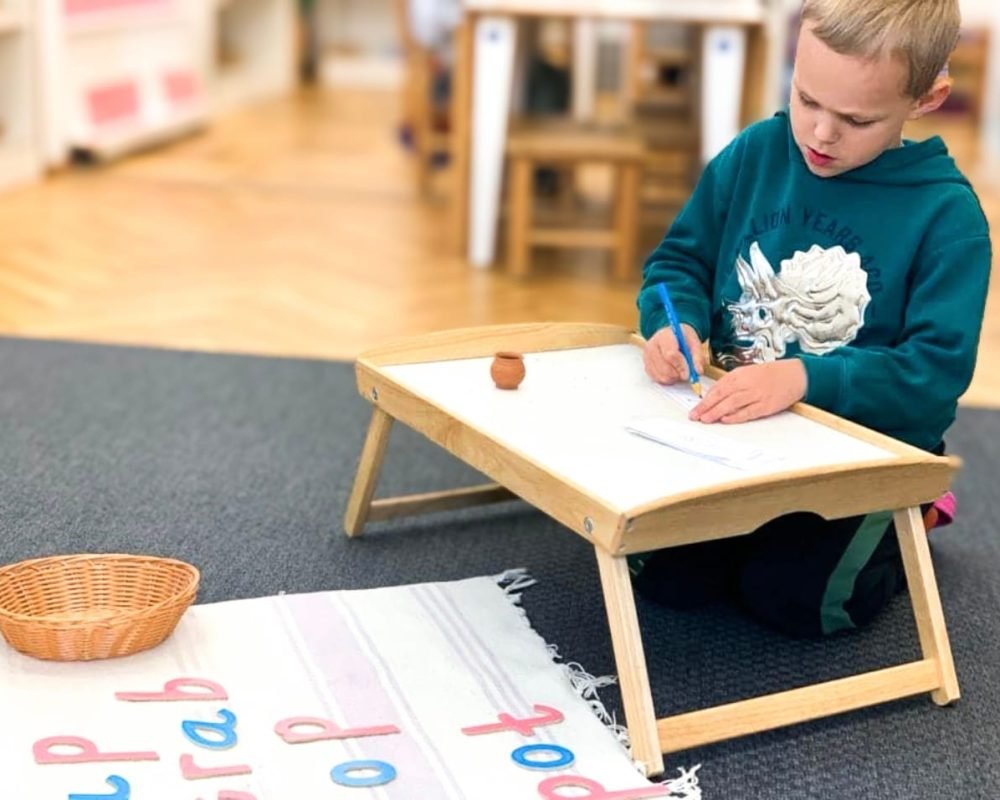
Culture
In a Montessori environment, “culture” refers to a broad term that encompasses various aspects of human life, society, and the world. Dr Maria Montessori emphasized the importance of exposing children to diverse cultural experiences, including history, geography, science, art, music, and social studies.
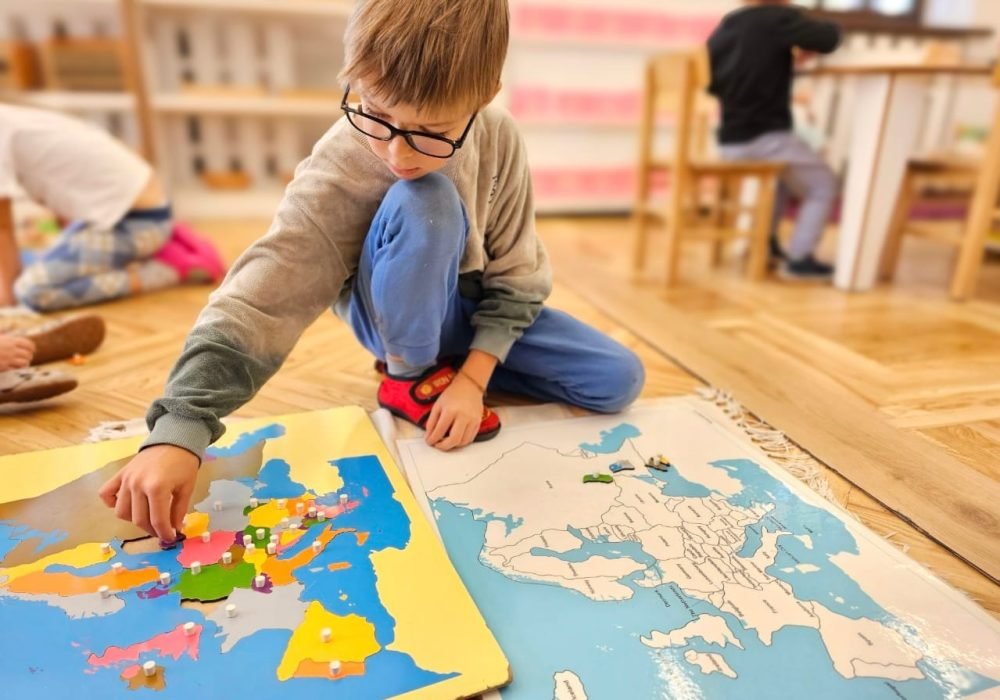
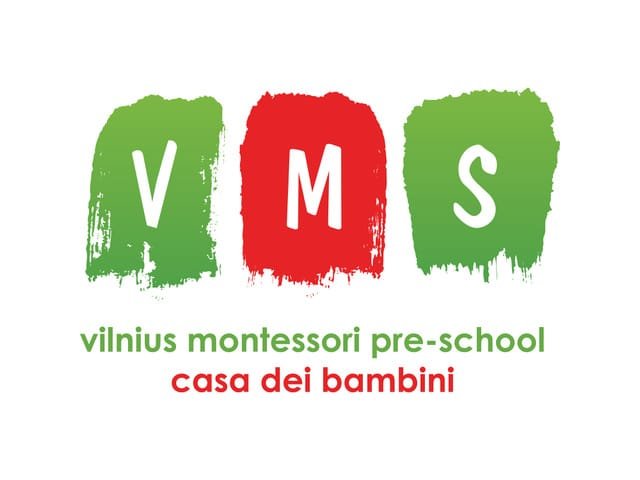






 VMS Parent Handbook
VMS Parent Handbook  download
download VMS Academic calendar
VMS Academic calendar  VMS fees
VMS fees  Latvių G. 16A Vilnius 08123
Latvių G. 16A Vilnius 08123 +370 655 08414, +370 640 70875
+370 655 08414, +370 640 70875 admin@vms.lt
admin@vms.lt  Mon-Fri 11:30 – onwards
Mon-Fri 11:30 – onwards